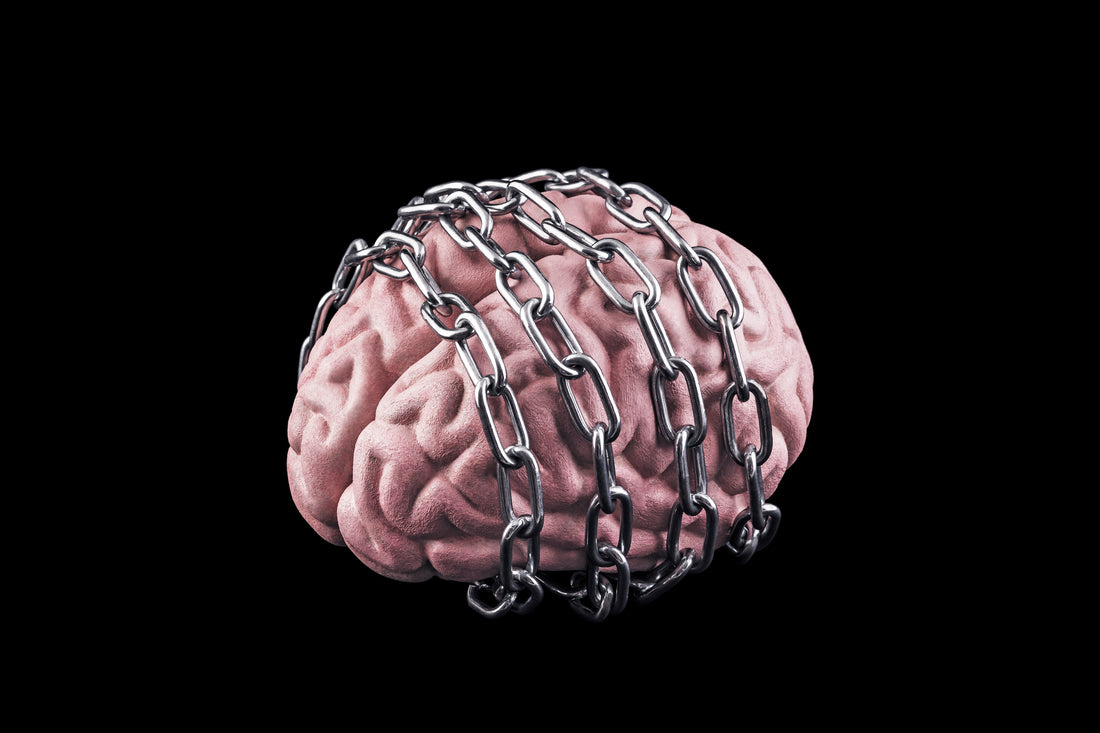Humanity's most prevalent addiction is thinking.
I'm not speaking of thinking along the lines of analyzing situations, responding to danger, or analyzing critical things that require immediate attention. Rather I'm speaking of secondary unproductive thinking patterns that don’t serve us well. The unproductive thinking I'm talking about consists of going from one obsession to the next, fantasizing, unstructured plotting and planning, and mentally drifting aimlessly in ways that get us nowhere.
Please participate in the exercise I'm about to describe; I think it will help you understand what I’m trying to say. Look into your mirror, paying close attention to your eyes and your breath. Feel your breath as you pull it in through the nose, filling up your lungs and then exhaling to let your breath leave your body. Do this repeatedly for five minutes, observing the activity in your mind as you do.
Notice how your mind drifts away from the focus on your eyes and breath. It may seem to you as if there's nothing wrong with this, that this is the way a mind should function. Perhaps contrary to the belief of some, though, this is not the purpose of the developed mind. The developed mind should be in control of itself. The developed mind should invite useful thoughts in, the same way we breathe in, and let go of useless thoughts, the same way we exhale.
We should try to reach a stage in our life in which we quiet down the chatter in our mind. We want to do this so that we can fully exist in the moment that we are in. We want to fully experience the present moment. When we are not experiencing our thoughts in our life that way, it means that a disconnect between the body and the mind is happening.
This mind/body split happens for a number of reasons, many of which go beyond the focus of this book. But we can summarize such a situation by saying that a series of distractions and discomforts move us away from the present moments of life. It’s important to practice the discipline of being in the present moment both physically (bodily) and mentally.
We experience the antithesis of that state of being all the time in everyday life. As an example, we may be loading the car with groceries. While doing so, rather than paying attention to things such as safety in the parking lot, we think ahead to how we’re going to spend the rest of the day or we reminisce about past experiences or fantasize about the future.
I'm not saying these things to criticize the way that most of us think as we go about our daily lives. I'm just pointing out that our default mental patterns can be self-destructive. We often think in certain ways because we believe that doing so will give us comfort or relief. In the short run such thinking can often do just that. But over time, we engage in and rely on such thought patterns for relief in addictive and obsessive ways. Not only do we end up getting less and less of the short-term relief we seek, but we also become less effective at thinking logically, clearly, and effectively.
We must overcome all addictions and obsessions in order to embrace a lifestyle of physical and mental health and wellness. This begins in the mind with overcoming addictive, obsessive thought processes that work against us. Use the process of meditation to learn how to focus your mind for short periods of time and fight your tendencies to become distracted. As you stick with it and make meditation a daily practice, you’ll be pleasantly surprised at how it helps you think in a clear, focused manner as you go about daily living activities of all types.
